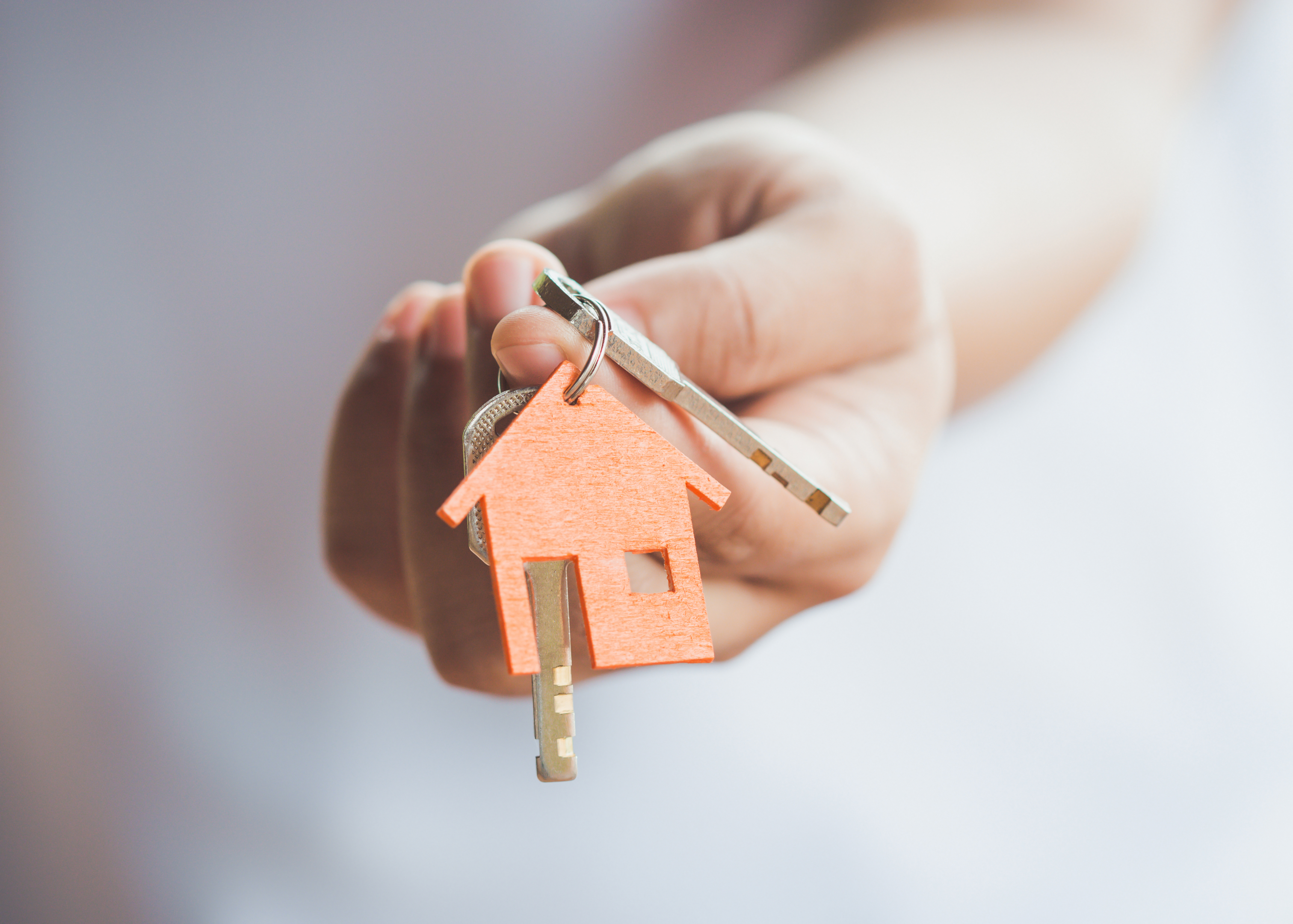How to Buy a Vacation Rental with No Money Down (7 Proven Strategies)

Are you considering entering the vacation rental business by purchasing an investment property? Or are you looking to expand your portfolio? The great news is you can buy a vacation rental property with no money down, or very little money.
In this comprehensive guide, we’ll outline various options for you to kickstart your journey and begin generating rental income from your rental property quickly, all without hefty initial investments.
We’ll delve into the tried-and-tested methods employed by seasoned real estate investors to finance their ventures, methods you too can leverage to start making money.
So, what are your options? How can you navigate around the substantial down payment, especially if you’re short on cash?

Alternatives to Traditional Loan
The biggest hurdle of your vacation rental dream hits you right at the start: the down payment. You’ll need an initial rental investment, including a down payment on the property. Frequently, property renovations are necessary to ensure it’s in top condition and maximize its earning potential.
The traditional approach is to head to a bank for a loan. But here’s the catch: investment properties typically require a hefty down payment, of at least 20%. That’s a lot of money upfront, and it can discourage people who don’t want to wait years to build up their savings. By the time they do, the initial excitement about starting this business might fizzle out, making it much harder to get a foot in the door.
On top of the down payment, you’ll also need to meet other requirements like a high credit score. This is especially true for investment properties compared to buying your primary residence or even a second vacation house. Stricter requirements may lead you to consider alternatives to banks and credit unions to buy a rental property with no money down.
Why are the bank requirements for buying an investment property so rigorous? We’ll explain it to you next.
Why Is It Difficult to Get a Loan for a Rental Property?
There’s a big difference depending on the purpose of the loan. Are you looking to buy a property as your primary residence (your main home), a secondary residence (a vacation home), or you’re interested in real estate investment?
- A primary residence is the home you live in most of the time.
- A secondary property is your vacation home, meant for your personal use.
- An investment property, on the other hand, you buy to make money, either through renting it out or by selling it later for a profit (capital appreciation).
Getting approved for a loan is easiest for primary residences and hardest for investment properties. Why? Banks see investment properties as riskier, and vacation rental property falls under this category.
Here’s what we mean by stricter rules for investment properties:
- You’ll need a larger down payment, a minimum of 20%.
- You’ll need to meet stricter qualification criteria, like having a high credit score.
- You pay higher interest rates.
How Can I Avoid a 20% Down Payment on Investment Property?
Coming up with a 20% down payment is a significant upfront expense. In fact, seasoned real estate investors and house flippers seek to avoid using their own cash for a down payment.
There are alternative, non-traditional ways to raise the initial funding for real estate investing. The first step is finding a good real estate deal. Look for rental properties in a desirable location, possibly a tourist area, with a high potential for a return on investment (ROI).
Some other criteria depend on the strategy you choose, we’ll explain them below.
7 “No Money Down” Investment Strategies for Vacation Rentals
In the world of real estate, house flippers and real estate professionals love to talk about OPM, which stands for ‘Other People’s Money.’
The idea is rather simple: you partner with someone who has the cash to invest in a rental property, and you work together on this project. You usually agree to split the profits from vacation rentals, appreciation, and home equity.
Partnering up isn’t the only way to buy vacation rental properties with no money down. We’re going to cover the 7 different strategies to help you find the method that works best for you.
Let’s dive in:
1. Seller Financing
Seller financing, also called owner financing, is basically like having the seller act as your bank. Instead of going through a traditional lender, you take out a loan directly from the seller. You’ll make monthly payments with an interest rate and terms that both parties agree on.
The biggest challenge with seller financing might be finding a seller willing to do a direct deal. But it’s possible to find sellers with more flexibility. Look for a rental property in areas where vacation rentals perform well. Maybe some people inherited the property from family members and don’t want to keep it anymore, or maybe they’re moving to another state.
Here’s where your negotiation skills come in to reach a favorable agreement, such as having a low or no down payment.
When you negotiate, highlight benefits for the seller to sweeten the deal:
- Faster sale – Seller financing can help them sell the property quicker.
- Extra income – They earn interest on the loan amount you pay over time.
- Tax benefits – There could be potential tax advantages for the seller by spreading out the capital gains from the sale over time to reduce the immediate tax burden associated with a large capital gain.
2. “Subject to” or How to Assume Seller’s Mortgage
Another strategy to buy a vacation rental with no money down is assuming the seller’s existing mortgage, often called ‘subject-to’ real estate. This involves finding a property owner struggling to make mortgage payments and taking over the seller’s mortgage at existing loan terms.
For investors, this can be a great way to avoid a down payment and other costs. For sellers who are behind on payments and need to sell quickly, it can offer a way out from distressed property. So, “subject to” can be a win-win solution for both parties.
In a ‘subject-to’ deal, the title gets transferred to your name, but the original mortgage stays in the seller’s name. However, there’s one thing to pay attention to.
Most mortgage lenders include a due on sale clause. This clause gives the lender the right to demand immediate full payment of the loan if the title is transferred without paying off the mortgage.
While it usually doesn’t happen, it’s a risk to consider. Consulting with real estate professionals and lawyers can help you understand how to protect yourself if the bank decides to call the loan due.
3. Rent-to-own Home
Also known as a lease option or lease purchase, rent-to-own is an agreement where you lease a property for a defined period with an option to buy it later at a set price.
This can be a convenient option for aspiring vacation rental owners because it offers a low entry barrier. With a rent-to-own lease, you can choose to purchase the property after the lease term is over, or you can walk away from the deal.
There’s no obligation to buy if that particular vacation rental property doesn’t generate enough cash flow. However, be aware that the rent payments will likely be higher than usual because a portion goes towards a down payment on the property.
Another important point: because the title remains in the landlord’s name, you’ll need their written consent before renting the property out as a vacation rental.
4. House Hacking
House hacking is a popular strategy for real estate and vacation rental beginners. As mentioned earlier, to become eligible for a loan for a primary residence is much easier than if it’s a real estate investment.
House hacking allows you to live in one unit of a multi-unit property while renting out the others. By doing this, rental income will offset your mortgage payments.
You’ll still need to secure a mortgage for the property, but government-backed mortgages like FHA loans, VA loans come with lower down payment requirements, going as low as 3.5%, or even less. The only condition is a mandatory residency of at least one year.
Some people may hesitate to have guests so close, but you can always move out later and rent out the entire space. By then, even newbies will have gained experience, making it easier to gain the trust of a real estate investor for future projects.

5. Leverage Your Home Equity
Consider borrowing money against your property. You can leverage your home equity by taking out a loan and reinvesting that money into purchasing a new property, which will cover the down payment, closing costs, and repairs. Even if you’re currently paying off a mortgage, the amount you’ve paid off represents your equity, which can serve as collateral for the rental property you’re purchasing.
Two programs that allow you to leverage your home equity are the home equity loan and the HELOC (Home Equity Line of Credit). While both are designed for home renovations and upgrades, you’re not limited in how you use the funds.
Investing in a short-term rental property can be the quickest way to start generating rental income and at the same time offset the loan payments. Yet another option is cash-out refinance.
Let’s delve into the details so you can understand the exact differences and pros and cons of these three models.
Home Equity Loan
A home equity loan is similar to a standard mortgage that you pay off over a set number of years. It’s based on the equity you’ve built up in your home, essentially acting as an additional loan on top of the existing mortgage, if you already have one.
With a home equity loan, you receive the entire amount in a lump sum upfront, and the repayment period begins immediately. What does the payoff look like? You have monthly mortgage payments at a fixed interest rate.
HELOC
HELOC, which stands for Home Equity Line of Credit, operates as a revolving credit line. Picture it as a credit card with a set limit available for use. You only repay the amount you utilize, plus the interest. For instance, if you have access to $20,000 and use only $10,000, you pay back just the $10,000 you spent.
This flexibility makes a HELOC more appealing compared to a home equity loan, where you’re obligated to pay back the entire borrowed sum. Lenders typically set a draw period—usually 10 years, though it can vary. During that period you can withdraw funds, and you can do it repeatedly.
Are there any drawbacks to using HELOCs? The interest rate is not fixed, meaning it fluctuates based on the market.
Cash-out Refinance
A cash-out refinance allows you to replace your current mortgage with a new loan and receive the difference in cash. This is possible thanks to the increased value of your property, which may result from market growth or home renovations. As the value of your property rises, use cash-out refinancing to obtain a significant cash amount for new investments.
This type of refinancing can be applied to both your primary home and investment properties. Banks often have specific requirements, such as a minimum level of equity and a limit on the maximum amount you can cash out. The bank hires an independent appraiser to assess the property’s market value and calculate the loan-to-value (LTV) ratio. That’s how they determine the cash amount you’re eligible to receive.
6. Real Estate Partnerships and Joint Ventures
Collaborating with real estate investors is a popular strategy in real estate. You don’t necessarily need to bring in your own money to buy an investment property. Instead, a partner can provide the financing, commonly referred to as using ‘Other People’s Money’ (OPM).
Each participant contributes to this joint venture. If not with financial contributions, it’s through expertise and time committed to finding good deals and managing vacation rentals.
A joint venture is formed through a contractual agreement based on mutually agreed terms. It’s beneficial for both sides, as deals can be closed much faster than through traditional lenders and traditional mortgages.
So, who can you partner with? It could be a private lender or a hard money lender. Let’s break down both options.
Private Money Loans
Partnering with private money lenders is a relationship-based business. This means they can be anyone who has capital, such as your friends, family members, or local people. These individual real estate investors have available funds and are interested in investing in properties that offer them a secure return on investment and passive income. That investor will become your mortgage lender.
Private lenders offer more flexibility by providing short-term loans for 12 months or less. This can be particularly advantageous if you need additional funds to cover the down payment and closing costs of acquiring a new property.
Additionally, the approval process is much faster than traditional mortgage lenders, allowing you to move quickly on rental properties.
Private money loans come with higher interest rates than traditional mortgages. Ultimately, it boils down to building trust with private lenders and negotiating terms effectively.
Hard Money Loans
Hard money lenders are either professional real estate investors or organizations that invest in rental properties as part of their business. They are willing to provide a hard money loan for your initial costs quickly because they focus on the property’s potential rather than your credit score.
Admittedly, their fees are quite steep, and there’s generally less room for negotiation compared to private lenders. However, hard money loans are indispensable for every real estate market.
You can find hard money lenders relatively easily since they promote their services, including through Google. If they trust your expertise and experience, and you’ve identified a promising property, securing a loan with hard money lenders should not be that challenging.
7. The BRRRR Method
Finally, we introduce the BRRRR method, a system for purchasing real estate without using your own money. BRRRR stands for Buy, Rehab, Rent, Refinance, and Repeat.
Real estate investors commonly use the BRRRR method to increase their income. At the end of this process, you can continue renting the property on Airbnb. Let’s break it down:
- Buy – The first step involves purchasing a distressed property. To do this without any upfront money, you could borrow from a private lender or leverage your home for a loan, as previously explained.
- Rehab – The second step is to rehab the property using the borrowed funds. After renovation, the property’s value appreciates significantly.
- Rent – Next, you rent out the property. If you opt for short-term rentals, you can start generating cash flow immediately.
- Refinance – After a while, you can do a cash-out refinance, as discussed previously. Typically, the bank will provide you with 80% of the property’s appreciated value in cash.
- Repeat – Use that money to repay the initial loan. The remaining cash can be used to repeat the process.
After doing a cash-out refinance, you’ll have a mortgage loan. However, if you continue with short-term rentals, you’ll offset the mortgage with rental income and start profiting. Plus, you’ll have the remaining cash from the cash-out refinance left over.
Benefits of Using the BRRRR Method for Acquiring Short-Term Rentals
The BRRRR method offers a scalable approach to real estate investing, enabling investors to rapidly expand their portfolios. By recycling capital and leveraging equity, investors can acquire multiple properties over time.
Investing in short-term rentals using the BRRRR method allows investors to diversify their real estate portfolio. Short-term rentals often yield higher rental income than traditional long-term rentals, especially in popular tourist destinations or high-demand areas.
Moreover, managing short-term rentals doesn’t have to be a hassle. There are ways to automate your business operations. If you decide to go this route, iGMS can greatly assist you with daily tasks, allowing you to focus on more important decisions like acquiring new rentals and scaling your business.
Do I Need Prior Investing Experience to Land Good Deals?
Building partnerships takes time and networking. Private and hard money lenders definitely look for trustworthy partners, so having some experience and expertise is essential.
The good news is that you can acquire this expertise relatively easily by educating yourself or by renting out a unit of your property on Airbnb, a strategy known as house hacking.
It’s your credibility, expertise, and portfolio that open the doors, rather than possessing a large amount of cash. The skill set you have and your ability to negotiate a real estate deal will lead you to purchase your next rental property with no money down.
Ensure a Vacation Rental Pays off the Morgage Loan
If you’re new to the vacation rental business, you might feel hesitant to borrow money or accrue debt to buy a rental property with no money.
However, if you select a location where Airbnb rentals are already thriving, the risk associated with short-term rental investment is considerably lower compared to many other businesses. This is because your rental income should comfortably cover the regular monthly payments of your mortgage.
Pros and Cons of Buying Vacation Rental Property with No Money Down
You have no money upfront, but you’d like to buy a rental property. Here are the pros and cons each real estate investor should think about.
Pros
- Lower Entry Barrier – A no down payment option makes real estate investment more accessible to individuals who may not have large savings.
- Low Initial Costs – It allows you to leverage other people’s capital, potentially owning a property and earning income from it without initial cash.
- Create Cash Flow – When the property generates significant rental income, it can cover the mortgage and expenses, leading to positive cash flow.
Cons
- Higher Interest Rate – Often, a no down payment purchase comes with a higher interest rate or mortgage insurance.
- Financial Strain – Without a down payment, the loan amount is higher, which can lead to larger monthly payments.
- Cash Reserve – You might still need to have a cash reserve for maintenance or emergencies.
Can I Buy My First Rental Property with No Money?
The short answer is yes, it is possible to buy a rental property with no money upfront, or very little. In real estate investing you can avoid traditional lenders like banks.
Buying a property with no money is accomplished by partnering with non-traditional private lenders, negotiating directly with a seller, assuming a seller’s mortgage or borrowing money against your house.

Starting an Airbnb business
Having seen how to get a foot in the door and acquire a rental property with no money down, it’s time to plan for running your short-term rental business efficiently and creating a positive cash flow.
Here’s a quick look at what iGMS offers:
- Automated Messaging: Keep your communication game strong with timely and automated responses.
- Multi-Calendar Management: Handle multiple listings with ease, ensuring you never double-book or miss out on potential guests.
- Performance Analytics: Dive deep into your hosting metrics to understand what’s working and where there’s room for improvement.
- Team Management: Collaborate seamlessly with your team, from cleaners to co-hosts, ensuring every guest has a stellar experience.
Let’s wrap up on a high note, as seasoned real estate professionals like to say: When you find a great deal, the money will follow.





![Your Monthly iGMS Roundup [February 2020]](/content/images/size/w600/wordpress/2020/02/igms-roundup-feb-2020-cover.png)

